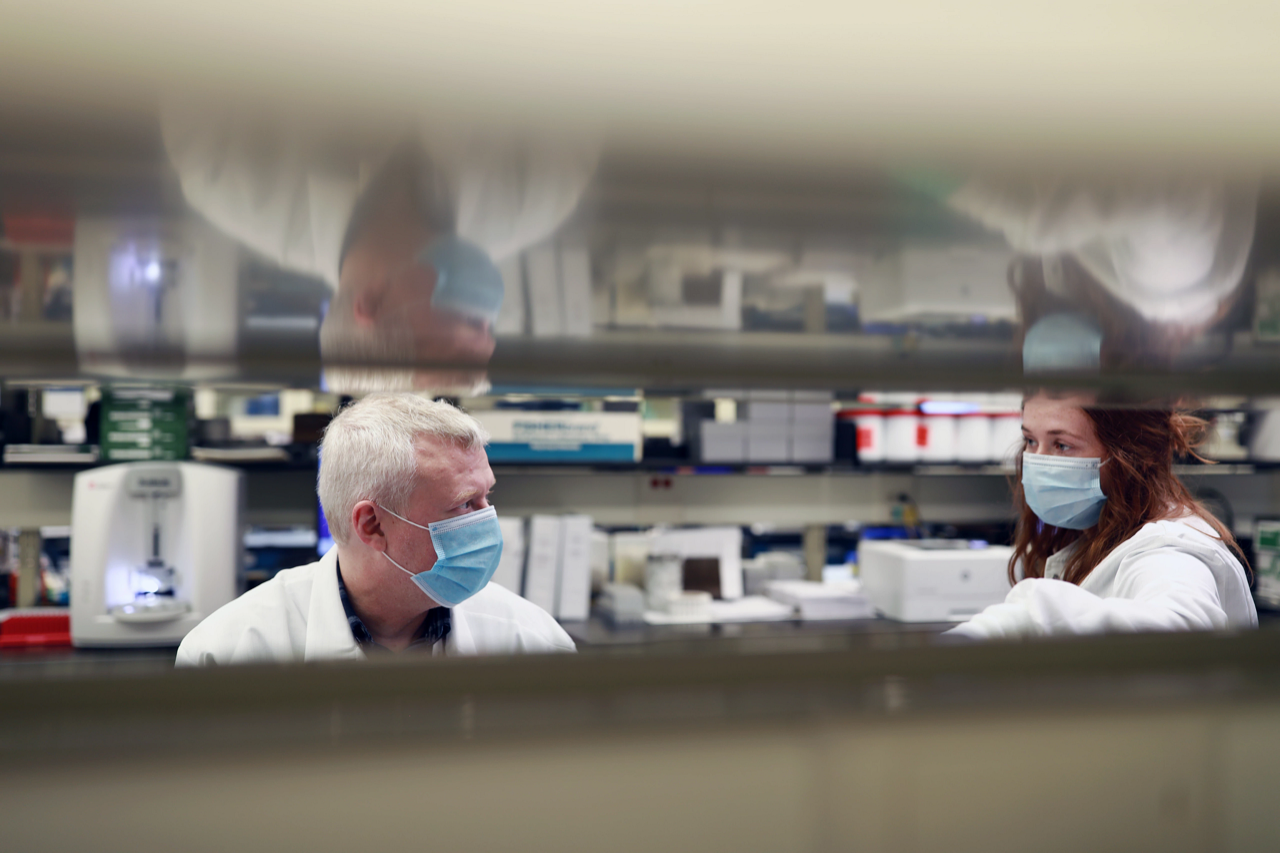CINCINNATI — The eyes of researchers around the world are on the AstraZeneca vaccine, which could be approved by the FDA for emergency use by the end of this month -- adding another weapon in the arsenal against coronavirus.
A newly-released study shows AstraZeneca’s vaccine could help prevent the transmission of COVID-19, now in the final stages of analysis at Cincinnati Children's Hospital.
“All of the vaccines we have for COVID so far have exceeded our expectations,” said Dr. Robert Frenck, the director of Children’s Vaccine Research Center.
AstraZeneca could soon join the ranks of Pfizer and Moderna with emergency use authorization. The latter two have been rolled out across the United States.

“We've had over 500 people in the AstraZeneca trial enroll at Cincinnati Children's,” he said. “Things have gone well. Everybody has finished their second dose.”
MORE: Cincy Children's Hospital tests AstraZeneca's COVID-19 vaccine
So far, side effects appear in line with the other shots, and Frenck is optimistic about the vaccine’s prospects of approval.
“I think that within the next two weeks, we'll probably have four vaccines available in the United States. We'll have the Pfizer, the Moderna, the Janssen (Johnson & Johnson) and the AstraZeneca I think all before February's out,” he said.
Researchers in the United Kingdom have found that, unlike its current peers, AstraZeneca could reduce transmission on top of preventing symptomatic infections -- but more follow-up is needed to confirm this. The doses would also be spread out over a greater period of time.
“While the one dose had the 72%, if you had a dose that was 12 weeks after that first dose it went up to 82 or 84%,” Frenck said.

The emergency go-ahead would shore up vaccine supply, and give the concept of herd immunity a shot in the arm even in the face of the unknown.
“What I would say at this point is the vaccines that we have are still showing very high efficacy even against these variants,” he said. “It is the reason why we want to get everybody vaccinated though.”
Frenck and other experts said while the short-term goal is emergency use authorization, getting the shots fully licensed could come by summer.





